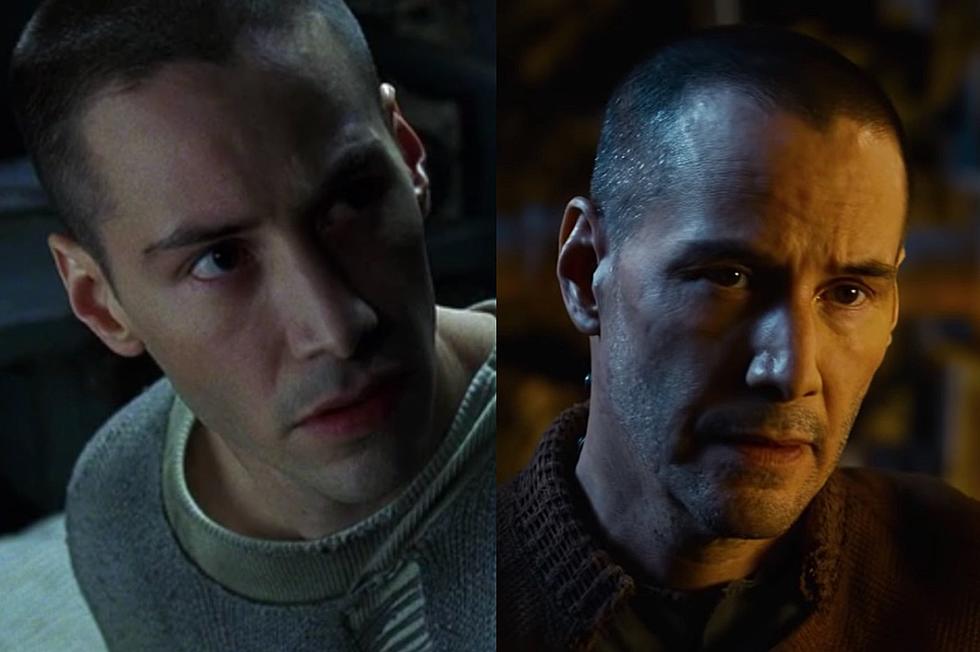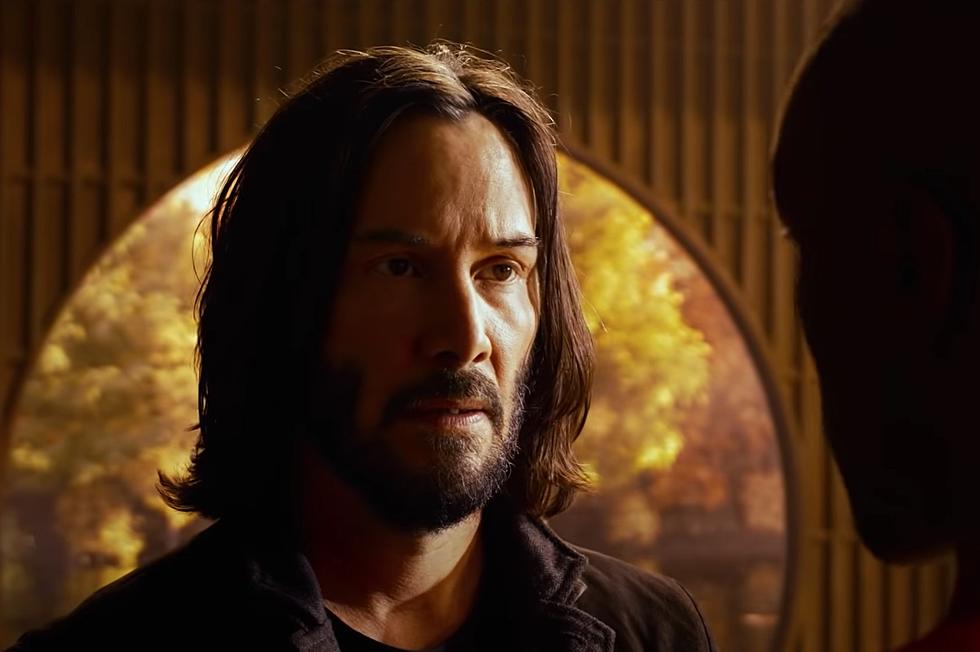
Lilly Wachowski’s Coming Out and When Media Crosses the Line
On Tuesday, Lilly Wachowski, formerly known as Andy Wachowski of the filmmaking sibling duo behind The Matrix trilogy and Cloud Atlas, came out as transgender. In an letter published to Chicago LGBT newspaper Windy City Times, Wachowski shared an impassioned message about her journey and the unfortunate circumstances that led to her coming out.
As she explained in her letter, Wachowski’s coming out wasn’t a decision wholly her own. The filmmaker revealed she’s been dreading the media outing her for the past year, with multiple outlets having reached out for statements regarding her presumed gender transition. Then this week the “threatened public outing against [her] will” became even worse. The director wrote that a reporter from U.K. publication the Daily Mail appeared on her doorstep on Monday night asking her to allow the outlet to interview her for a story about her gender transition. Wachowski wrote that the reporter told her she “had to sit down with him tomorrow or the next day or next week so that I could have my picture taken and tell my story which was so inspirational!”
Once he left, Wachowski remembered that the Daily Mail was the same publication involved in the controversial public outing of trans woman Lucy Meadows in 2012. Three months following the story, Meadows committed suicide and though the Daily Mail article wasn’t directly linked to her death, the coroner condemned the media for their “sensational and salacious” coverage of Meadows. Thus, Wachowski wrote that she decided to finally come out on her own before the media had the chance to out her. “I just wanted— needed some time to get my head right, to feel comfortable. But apparently I don’t get to decide this,” she wrote. “So yeah, I’m transgender. And yeah, I’ve transitioned.”
Wachowski’s letter, which can be read in full here, is filled with beautiful and inspirational statements about the support of her friends and family while coming out, how hard it’s been for both her and her sister, Lana Wachowski, who publicly came out as transgender in 2012, and the many definitions that “transgender” and “transition” have outside of the gender binary. Yet as much as the filmmaker’s letter is a brave and empowering message about the ongoing progress that can come in discovering one’s gender identity, it also highlights a dangerous and unchanging problem within the media. Though Wachowski did come out in her own words she may not have been ready, and she, as any person, doesn't deserve to be pressured by the press to reveal her identity to the world. GLAAD’s Nick Adams furthered this notion in a statement following the director’s letter, saying that she “should not have been forced to disclose her transgender identity before she was ready to do so.” Adams added that “journalists must learn that it is unacceptable to out a transgender person, in the same way it is unacceptable to out a person who is gay, lesbian, or bisexual.”
The Daily Mail has since issued a statement about the incident at Wachowski’s home on Monday night, telling Variety that “DailyMail.com categorically denies that it in any way tried to coerce Lilly Wachowski into revealing her gender transition.” The publication added that their reporter was “extremely sympathetic and courteous at all times.” Whether that’s true doesn’t matter. What does is that the Daily Mail, like many other publications that approached Wachowski, had absolutely no right to ask. A person’s decision to publicly discuss their gender identity and/or decision to transition — a word that GLAAD defines as a “complex process“ that can include personal, medical and/or legal changes, though can vary from one individual to the next — is one they have the right to make on their own. A media organization threatening to publish information about a trans person’s identity is disrespectful and dangerous. Coming out as transgender is not the same as a celebrity publicly revealing a separation from a spouse or another personal matter, and that’s because being transgender in current-day America is something still largely discriminated against with violence. As transgender writer Tyler Ford, known from The Glee Project, wrote in a column for MTV News, “It is never ok to out someone as transgender without their consent — not only does it take away their agency, but it can be dangerous and cause real harm to the person being outed.”
The more the media treats the identities of transgender people and celebrities like gossip fodder, the further our society gets from accepting members the community as equals.
It’s no news that violence against the trans community is rising. Last November, multiple reports found that the homicide rate of transgender women and gender nonconforming (GNC) individuals, many of whom were people of color, was at an all-time high of 22 murders in 2015 alone. The suicide rate within the trans community is also significantly higher than the population at large. One commonly referenced survey conducted by the UCLA Williams Institute found that out of their respondents, 41 percent of people who had attempted suicide identified as transgender or GNC, and that suicide attempts are more prevalent among those who’ve disclosed their gender identity to others. Even a brief look at the many injustices trans people face across the U.S. today further reveals their inequality, such as the fight against bathroom bills and the fact that there are only 16 states where trans people legally can’t get fired for being trans.
So it’s clear, being an out trans person can be very dangerous thing in the U.S., and of course in many other countries. Yet the media has continued to disregard a transgender person’s right to come out on their own terms and own time as shown by the treatment of both Wachowski sisters. Outlets began speculating about Lana Wachowski’s gender identity and medical transition as early as 2003, despite the fact that Lana didn’t publicly speak about being a transgender woman until 2012 when she accepted the Human Rights Campaign’s Visibility Award. For nearly a decade, though, the media refused to respect the privacy of her transition, similar to how Caitlyn Jenner was treated by the press before publicly coming out last year.
While Lilly Wachowski recognizes in her letter that she’s “one of the lucky ones,” a trans woman who has the support of her family, and is of course a celebrity with more privilege and access than much of the trans community, that doesn’t mean any outlet has the right to question her, her sister’s or any trans or GNC person’s identity without their consent. Each trans and nonconforming person should be allowed the same rights and respect as any other individual. The more the media invades and threatens those rights, the more the general public is led to believe that they can do the same. And the more news organizations and tabloids focus on a trans person’s physical body, speculating over the use of hormones or possible gender-reassignment surgery, the more the dialogue about the trans community centers on their bodies. For those who don’t know, it is largely disrespectful to ask a trans or GNC person about surgery or what’s between their legs. (Here’s a helpful guide for how to courteously talk to transgender folks.) As Laverne Cox has repeatedly spoken about, the “preoccupation with transition and surgery objectifies trans people” and keeps us “from humanizing trans folks.” The more the media treats the identities of transgender people and celebrities like gossip fodder, the farther our society gets from accepting members of the community as equals.
Though the events leading up to such a bold letter from the V for Vendetta filmmaker are unfortunate and upsetting, they at least serve as a reminder for how media and society at large can begin improving the ways we talk about and treat folks in the trans and GNC community. From here, hopefully we can look forward to the Wachowski sisters bringing more trans and LGBT visibility both off and on screen. In addition to their lesbian and gay characters in Bound, Cloud Atlas and V For Vendetta, they also introduced a trans character played by trans actress Jamie Clayton in last year’s Netflix series Sense8. Here’s to hoping for even more Nomi and diverse LGBT representation in Season 2.
More From ScreenCrush









